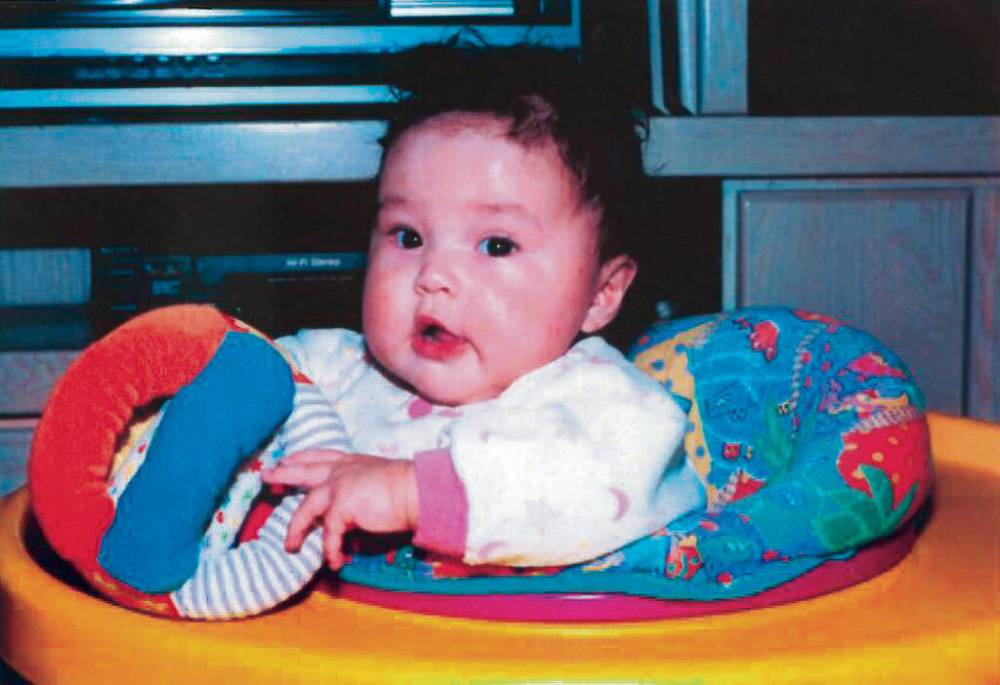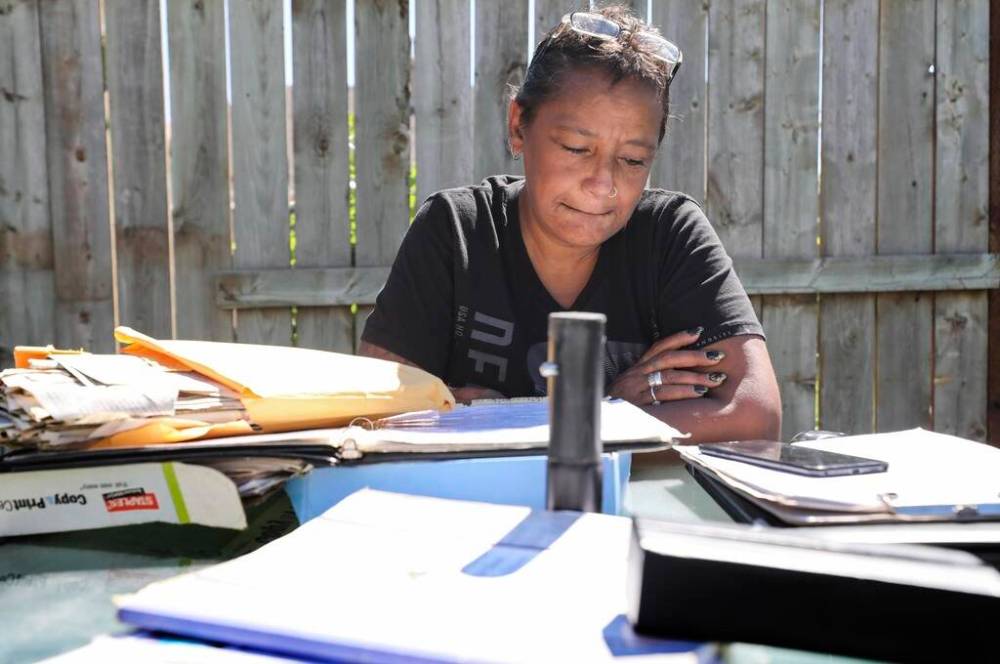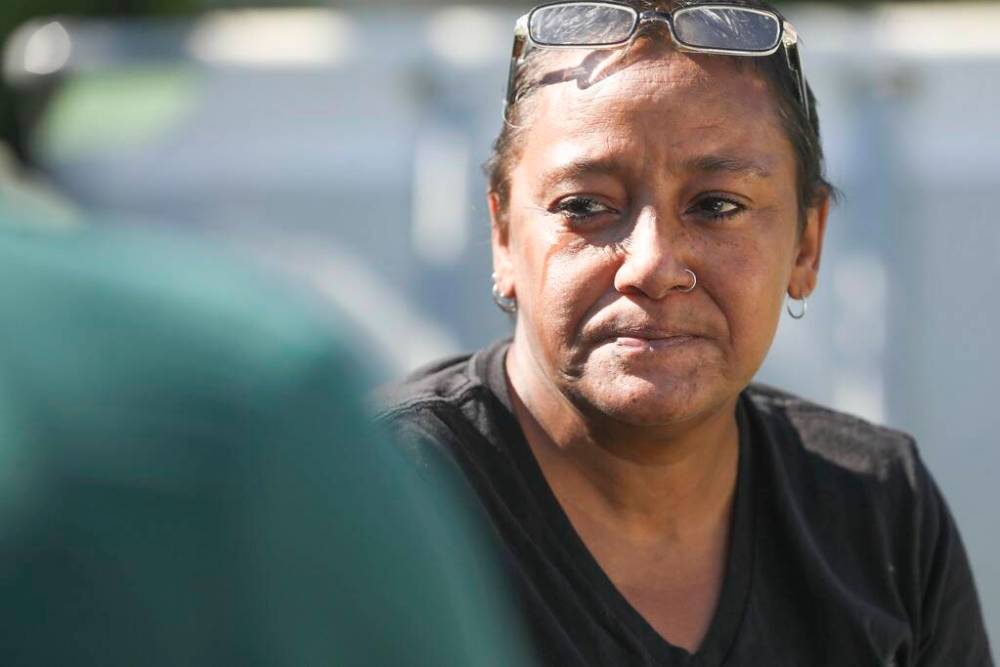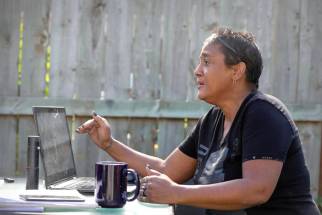Parole board decision traumatizes Phoenix’s devastated godmother ‘It keeps me awake at night,’ she says after woman who tortured, murdered her own five-year-old daughter granted temporary leaves from prison
Read this article for free:
or
Already have an account? Log in here »
To continue reading, please subscribe:
Monthly Digital Subscription
$0 for the first 4 weeks*
- Enjoy unlimited reading on winnipegfreepress.com
- Read the E-Edition, our digital replica newspaper
- Access News Break, our award-winning app
- Play interactive puzzles
*No charge for 4 weeks then price increases to the regular rate of $19.00 plus GST every four weeks. Offer available to new and qualified returning subscribers only. Cancel any time.
Monthly Digital Subscription
$4.75/week*
- Enjoy unlimited reading on winnipegfreepress.com
- Read the E-Edition, our digital replica newspaper
- Access News Break, our award-winning app
- Play interactive puzzles
*Billed as $19 plus GST every four weeks. Cancel any time.
To continue reading, please subscribe:
Add Free Press access to your Brandon Sun subscription for only an additional
$1 for the first 4 weeks*
*Your next subscription payment will increase by $1.00 and you will be charged $16.99 plus GST for four weeks. After four weeks, your payment will increase to $23.99 plus GST every four weeks.
Read unlimited articles for free today:
or
Already have an account? Log in here »
Hey there, time traveller!
This article was published 10/08/2022 (1217 days ago), so information in it may no longer be current.
Kim Edwards sits with pursed lips and crossed arms in the backyard of her Stella Avenue home. Large stacks of documents, letters and newspaper clippings lay scattered around her. Nearly every one of them mentions the name Phoenix Sinclair.
On Monday — when news broke that Samantha Kematch, the woman convicted of torturing and killing her five-year-old daughter Phoenix, would receive temporary leave from prison — Edwards felt defeated.
“We don’t get listened to by anybody,” Edwards said. “We don’t like it, we’re resigned to it, but that’s not going to stop me from writing letters to the parole board and doing whatever I can.”
In 2008, a judge sentenced Kematch and her former boyfriend, Karl Wesley McKay, to serve life sentences with no parole eligibility for 25 years.
The trial revealed the girl suffered months of abuse before her death, including starvation and extreme violence. One forensic expert testified Phoenix showed evidence of broken bones in almost every part of her body.
WINNIPEG FREE PRESS FILES Phoenix Sinclair of Winnipeg. The trial revealed the girl suffered months of abuse before her death, including starvation and extreme violence.
Her death sparked a $14-million provincial inquiry into the child-welfare system that found social workers failed to keep track of her.
Related stories
Dec. 3, 2012: Phoenix Sinclair was a week away from a safe, loving home
Jan. 31, 2014: Sinclair inquiry report: more focus needed on long-term risks to children
Jan. 31, 2014: Minister apologizes for failure of system
Jan. 31, 2014: Video: Phoenix Sinclair inquiry top recommendations
Feb. 1, 2014: Long-awaited report offers 62 recommendations to fix the child-welfare system
At a hearing last month, the Parole Board of Canada approved Kematch for a series of escorted temporary absences, during which she will be allowed to leave prison under supervision but unrestrained. She will use the time away, which amounts to 40 hours, to visit with family and engage in Indigenous ceremonies.
While it is far from full parole, it is still an unwarranted privilege, said Edwards, who was Phoenix’s godmother and cared for the child during much of her short life. Edwards was a friend of Phoenix’s father, Steve Sinclair.
Phoenix was officially placed with Edwards in 2003 after the toddler was apprehended from Sinclair during a weekend party at his home. Sinclair was a single parent after Kematch left in June 2001. Edwards and her former partner had both passed criminal record and child-abuse registry checks and their home was checked out by a CFS social worker.
But only months later, Phoenix was returned to Sinclair without explanation, Edwards said during the inquiry. The child was bounced between foster care and Edwards before she was taken from Edwards’s home by Kematch in 2004. In 2005, Phoenix was beaten to death by Kematch and McKay. Her body was found in 2006 in a landfill at Fisher River Cree Nation.
Last March, the parole board contacted Edwards, a registered victim with the Correctional Service of Canada, for a statement before it approved Kematch’s temporary leaves.
She responded on behalf of herself and Sinclair.
“Mr. Sinclair, myself and our families staunchly opposed this… I could write 1,000 pages as to why this woman should not be allowed the privilege,” she told the board. “(We have been) traumatized over and over again, and now learning that she is being considered for release only makes that pain and anguish we feel worse.”
”Learning that she is being considered for release only makes that pain and anguish we feel worse.”–Kim Edwards
Edwards told the board that the child-murderer should not be rewarded with temporary leaves to mingle with friends and family.
In the end, the letter was in vain, she said.
“I have completely resigned that she is getting out of prison… in my mind, my soul and my being,” she said. “She’s a dangerous offender, so is Karl McKay. How are we not taking this into account?”
Edwards was an outspoken witness during the 2008 trial and inquiry.
In the years since, She has penned countless letters to attorneys, wardens and politicians about the case, warning them of the danger she believes Kematch poses and the importance of keeping her locked up.
To make her point, she rifles through a stack of them, stopping periodically to jab her finger at names, sentences and dates. The officials and organizations addressed in these documents have ignored her pleas, she said.
“It keeps me awake at night, and I am speaking literally,” Edwards said, blurting out the words with tears in her eyes. “It’s not from a sense that I can’t deal with her death, it’s that I can’t deal with the fact that I made a promise, and I can’t keep it.”
RUTH BONNEVILLE / WINNIPEG FREE PRESS While it is far from full parole, it is still an unwarranted privilege, said Kim Edwards, who was Phoenix Sinclair’s godmother and cared for the child during much of her short life.
That promise was to secure justice for Phoenix, and these temporary leaves undermine that justice, Edwards believes.
If Kematch wants to pay for her crimes, she must spend 25 years behind bars before seeking any form of parole, Edwards said.
Kematch’s temporary leave approval did not surprise Scott Newman, a criminal defence lawyer.
“I think it is not unusual. It happens. The important thing really is this is not something that was lightly arrived at,” Newman said. “It’s important to know how many eyes have looked at it and how many people have approved it before it comes into being.”
“It keeps me awake at night, and I am speaking literally… It’s not from a sense that I can’t deal with her death, it’s that I can’t deal with the fact that I made a promise, and I can’t keep it.”–Kim Edwards
Newman stressed the distinction between full parole and temporary absences. While Kematch may be allowed to leave the prison, she will remain under strict control and supervision. It is a far cry from freedom, he said.
Time outside prison allows offenders to demonstrate their rehabilitation and potential to reintegrate into society. Regardless of a person’s crime, the opportunity for parole is a protected right under the Canadian constitution and holding someone indefinitely is cruel and unusual punishment, he said.
“Everybody has to be given an opportunity to rehabilitate, to become a functioning member of society, because if you don’t have that, you’re undermining human dignity,” Newman said. “Even the… worst offenders can turn their lives around.”
RUTH BONNEVILLE / WINNIPEG FREE PRESS Kim Edwards told the board that the child-murderer should not be rewarded with temporary leaves to mingle with friends and family.
Newman added that establishing a track record of successful temporary leaves may help Kematch down the line when she applies for further privileges. She can apply for day parole in 2028 and full parole in 2031.
To qualify, she will need to meet strict requirements set out by the parole board, which often include daily reports, ongoing counselling and drug testing. If the board does eventually release Kematch from prison, she will remain under supervision and on parole for the rest of her life, he said.
Decisions made regarding Kematch’s parole are unlikely to impact McKay, Newman added.
If McKay wants to access temporary leaves and, ultimately, parole, he will need to demonstrate to the board that he has made efforts toward rehabilitation and is unlikely to pose an undue risk to society. That includes participating in programs, showing personal growth and staying out of trouble while in prison, Newman said.
tyler.searle@freepress.mb.ca
History
Updated on Thursday, August 11, 2022 3:30 PM CDT: Clarifies Phoenix's death sparked a $14-million provincial inquiry.









